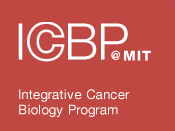| Title | A developmentally regulated translational control pathway establishes the meiotic chromosome segregation pattern. |
| Publication Type | Journal Article |
| Year of Publication | 2013 |
| Authors | Berchowitz, LE, Gajadhar, AS, van Werven, FJ, De Rosa, AA, Samoylova, ML, Brar, GA, Xu, Y, Xiao, C, Futcher, B, Weissman, JS, White, FM, Amon, A |
| Journal | Genes Dev |
| Volume | 27 |
| Issue | 19 |
| Pagination | 2147-63 |
| Date Published | 2013 Oct 1 |
| ISSN | 1549-5477 |
| Keywords | 5' Untranslated Regions, Chromosome Segregation, Gene Expression Regulation, Fungal, Intracellular Signaling Peptides and Proteins, Meiosis, Multigene Family, Protein Binding, Protein-Serine-Threonine Kinases, RNA, Messenger, Saccharomyces cerevisiae, Saccharomyces cerevisiae Proteins |
| Abstract | Production of haploid gametes from diploid progenitor cells is mediated by a specialized cell division, meiosis, where two divisions, meiosis I and II, follow a single S phase. Errors in progression from meiosis I to meiosis II lead to aneuploid and polyploid gametes, but the regulatory mechanisms controlling this transition are poorly understood. Here, we demonstrate that the conserved kinase Ime2 regulates the timing and order of the meiotic divisions by controlling translation. Ime2 coordinates translational activation of a cluster of genes at the meiosis I-meiosis II transition, including the critical determinant of the meiotic chromosome segregation pattern CLB3. We further show that Ime2 mediates translational control through the meiosis-specific RNA-binding protein Rim4. Rim4 inhibits translation of CLB3 during meiosis I by interacting with the 5' untranslated region (UTR) of CLB3. At the onset of meiosis II, Ime2 kinase activity rises and triggers a decrease in Rim4 protein levels, thereby alleviating translational repression. Our results elucidate a novel developmentally regulated translational control pathway that establishes the meiotic chromosome segregation pattern. |
| DOI | 10.1101/gad.224253.113 |
| Alternate Journal | Genes Dev. |
| PubMed ID | 24115771 |
| PubMed Central ID | PMC3850098 |
| Grant List | 5P01GM088297-04 / GM / NIGMS NIH HHS / United States GM62207 / GM / NIGMS NIH HHS / United States P30 CA014051 / CA / NCI NIH HHS / United States U54 CA112967 / CA / NCI NIH HHS / United States / / Howard Hughes Medical Institute / United States |
